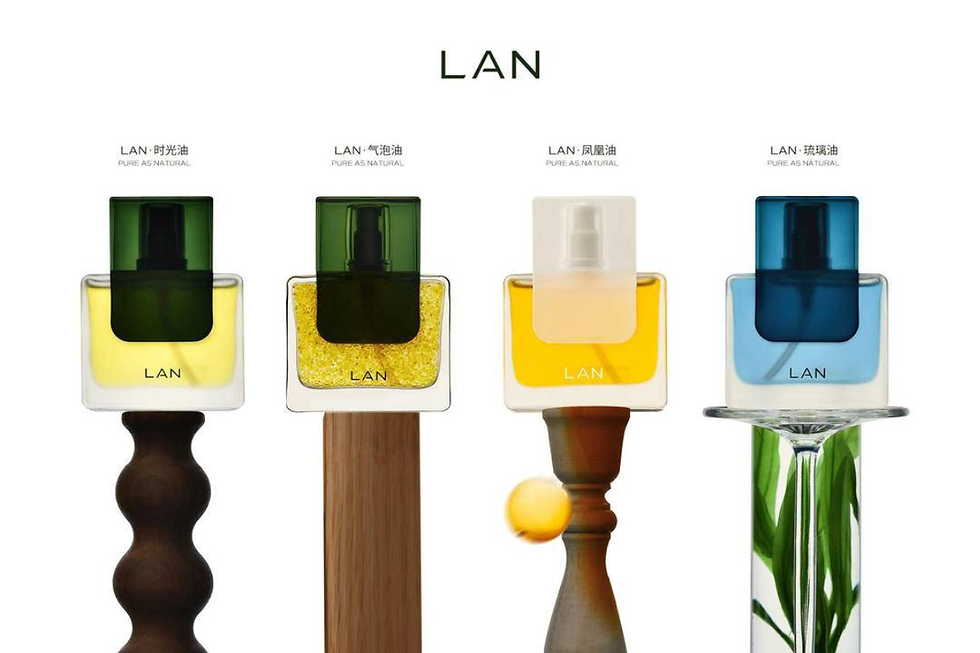CASES | Real ESG Builds Sustainable Brands
- lenichen
- Dec 26, 2023
- 3 min read
Updated: Aug 27, 2025
Sustainability is becoming a growing focus for the public when it comes to brands, with an increasing number of Gen-Z are willing to support brands that exhibit a sense of corporate responsibility. ESG (Environmental, Social, Governance) is emerging as a key direction in marketing.
ESG marketing is gaining popularity and it diversifies in terms of topics. Double V Consulting will share insights from 3 perspectives of ESG, and analyze 4 marketing cases with both positive and negative results. This will help brands achieve a more profound and wider approach to ESG marketing, ensuring sustainable development.

E for Environmental

Case: Chinese Skincare Brand ZhiBen - Sustainable Packages

▲ Image via @至本ZhiBen
This brand is mindful of ESG marketing details, using green colors on the purchase page, and providing waste sorting and recycleguidance on packaging. These efforts resonate with environmentally conscious consumers and positively impact their choices.
ZhiBen prioritizes sustainability by using PEFC & FSC certified paper and adhesive-free boxes for packaging. It also provides product refills for consumers to avoid waste and extend the lifespan of the packaging. In 2021, ZhiBen launched a permanent bottle recycling project, allowing consumers to exchange gifts when returning empty bottles, contributing to environmental sustainability.
S for Social

Case: Milk Tea Brand A Little Tea - Animal Welfare
In China, pet industry is flourishing and rapidly expanding. However, regulations for the pet market and pet owners are incomplete. Public awareness of proper animal treatment is lacking, leading to a strained relationship between animals and society and, in some cases, animal abuse.
The phrase "You don't have to love them, but please don't hurt them" has become a heartbreaking slogan on social media from time to time.

▲ Image via A Little Tea (Xiaohongshu)
Most often, it is individuals advocating for animal welfare who express such sentiments. Brands have now caught onto the public's concern and are joining the animal welfare cause. Notably, even brands unrelated to pet industry are now willing to speak out for animal welfare.
Negative Case: False Advertising - More-Yogurt

In July, More-Yogurt faced criticism for high prices (A single beverage can cost as much as 30 RMB), earning a bad name "Yogurt Assasin." Marketed as a healthy choice for the health-conscious youth with low calories, sugar, and fat, it was later exposed for using potentially unhealthy ingredients such as plant fat powder. The brand refusing to address the issue made customers more angry and frustrated.
This brand claims to be healthy but uses questionable ingredients, going against ESG's social responsibility principle, which not only hurts consumer rights but also harms the brand's reputation.
G for Governance

Case: Chinese Instant Noodle Brand White Elephant - Care for Disabled Employees

One-third of White Elephant's employees are individuals with disabilities, known as "empowerment employees." These employees receive equal pay and enjoy the same benefitsas other coworkers. Their work positions are tailored based on their physical characteristics, and the production line and public areas are made accessible to ensure their safety and convenience.
Double V Tips
● Always be honest and transparent with your consumers. Honesty means everything.
● Design ESG campaigns that align with the brand image and reflect the brand’s core value. Effective ESG communication builds connections by sharing social values and fostering shared beliefs.
● Identify real issues and offer sincere solutions, avoid "greenwashing".
● Be creative!
Double V Consulting understands the subtle cultural nuances in the Chinese-speaking world with extensive marketing experience, and a deep understanding of the diversity and vibrancy of the Chinese market. We will be your ideal partner for social media marketing in China.
Contact us and start your brand journey on Chinese social media!



Comments